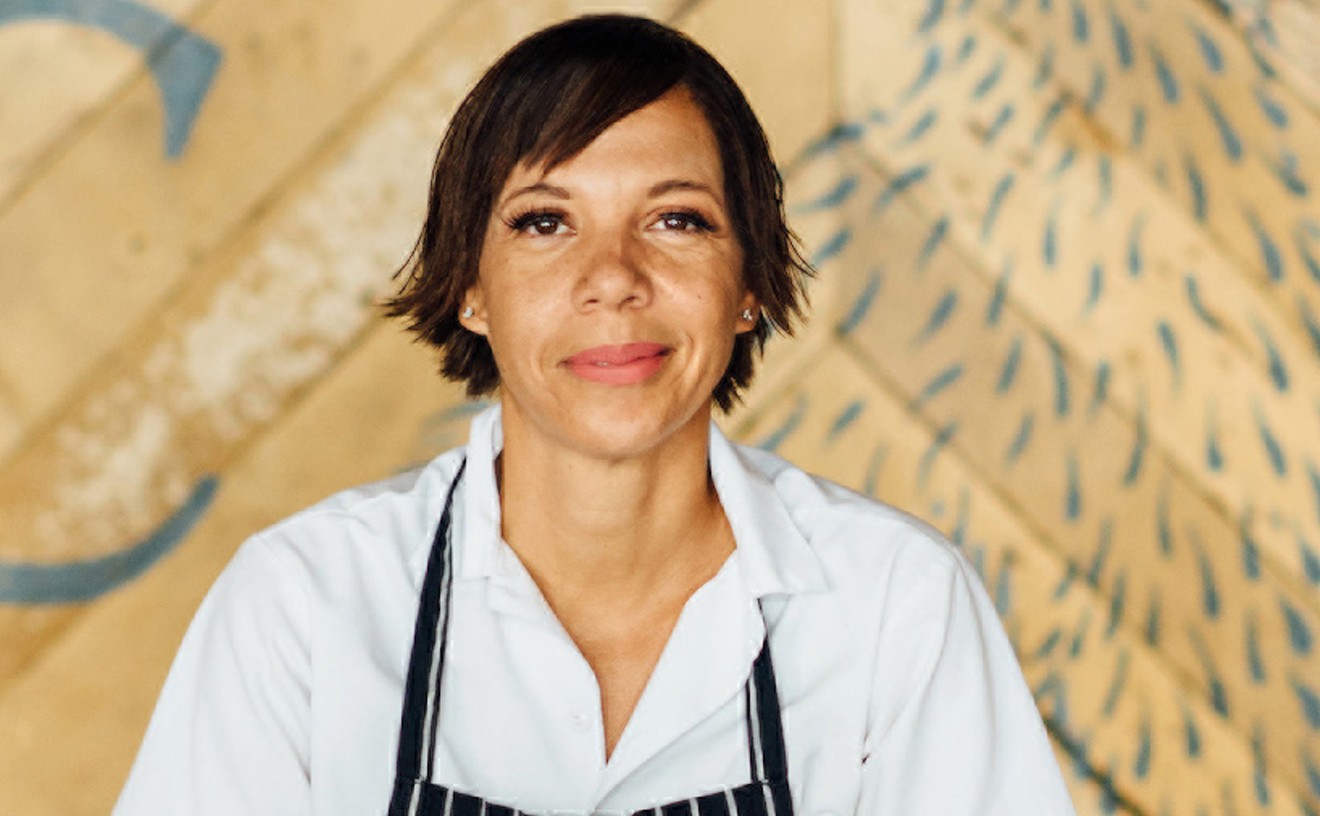"I'm tired of being a pioneer," Jeremiah Bullfrog said to an enthusiastic audience last week at the Langford Hotel. The Gastropod chef/owner was one of five panelists invited by Disrupt Miami — a monthly speaker series that connects like-minded individuals with local innovators helping to shape the Magic City's future — to discuss the city's ever-evolving culinary scene. He was responding to the question on everyone's mind: Where is the next Wynwood? Joining him in the discussion were Guillermo Concha of PB Station, Freddy Kaufmann of Proper Sausages, William Crandall of Izzy’s Fish & Oyster, and Julie Frans of Seed Food & Wine Festival and Slow Foods. Chat Chow TV's Gio Gutierrez was the moderator.
The group's consensus was that Wynwood — Miami's "Brooklyn," as Bullfrog calls it — can't be replicated because, unlike other neighborhoods, it was an empty slate. Besides, to call an area the next Wynwood limits creativity, said Proper Sausages' Kaufmann. Instead, he thinks we should concentrate on how to enhance each neighborhood's existing charm or come up with novel ways of breathing life into other areas of the city. That said, the panelists agreed that pockets of Miami are in the midst of developing strong culinary identities, such as downtown, Coconut Grove, Little Havana, Little River, and Little Haiti.
And although Bullfrog doesn't want to be the first one to take a chance on a new neighborhood, PB Station's Concha called the Langford Hotel and the Pubbelly Boys pioneers for opening a sophisticated restaurant in downtown Miami. "I think as a chef and a small-business owner, there's no greater satisfaction than when you start something and build it," he told the crowd. For his part, Izzy's Fish & Oyster's Crandall believes the real "pioneers" are the customers who venture to try a restaurant in a developing part of town and continue to support it as the area flourishes.
The five speakers agreed Miami has been experiencing a culinary renaissance since about 2006. They partly credit established chefs Michael Schwartz and Michelle Bernstein, who dared to move away from South Beach and open eateries on the mainland. Before 2006, gourmet dining was something only the wealthy could enjoy, Bullfrog said, which is why he opened a food truck where customers could eat well for less than $10. "Now it's easier to eat fois gras," Concha said proudly.
When Gutierrez asked the group whether Miami needs a flagship fine-dining destination in the vein of French Laundry in California, the response was no. Bullfrog thinks Miami's answer to a fine-dining flagship already exists, and it's Alter. He said no one wants to sit for a three-hour meal anymore, nor do customers need white tablecloths. "Fine dining has turned into an ingredient-driven concept," said Crandall, adding that locals care more about creativity and comfort than molecular gastronomy.
Another hot topic was the issue of supporting local farms and serving seasonal fare. Frans of Seed Food & Wine Festival and Slow Foods expressed concern that not enough Miami chefs take the time to get to know the farmers in Homestead. "I want to be remembered for challenging chefs and saying, 'What are you doing to buy local and impact the community positively?'"
Frans said restaurants can buy local year-round but many just don't bother. What's more, many places focus more on serving organic produce than on sourcing local ingredients. However, many small local farms are in fact organic in practice even though they don't hold the USDA certification because it's very expensive to acquire. "When they're in season, local greens will taste better than organic greens from California," she emphasized.
To close out the spirited discussion, Gutierrez asked the panelists: "What's always in your fridge?"
- Jeremiah Bullfrog: "Pickles and green juice."
- Freddy Kaufmann: "Beer."
- Guillermo Concha: "Greek yogurt."
- William Crandall: "Japanese mayo and bourbon."
- Julie Frans: "Homemade kimchee."
Follow Valeria Nekhim Lease on Twitter and Instagram










